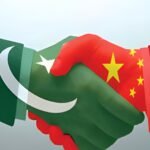By Abdul Ghani
ISLAMABAD— Pakistan’s external account is still under pressure in the first two months of FY2026. While exports are recovering, rising imports have pushed the trade deficit higher, according to the Finance Division’s Monthly Economic Update & Outlook – September 2025.
The report shows that goods exports grew by 10.2 percent compared to last year, reaching $5.3 billion during July–August FY2026, up from $4.8 billion in the same period last year.
Textiles led the recovery, with knitwear exports up 16.9 percent, bedwear up 12 percent, and garments up 10.6 percent. Services exports also increased by 11.5 percent, totaling $1.4 billion.
Despite this growth in exports, imports rose even faster, climbing 8.8 percent to $10.4 billion, up from $9.6 billion last year.
The increase was mainly due to higher imports of petroleum products, which jumped 17.8 percent, and palm oil, which rose 29.1 percent.
Pakistan’s heavy reliance on edible oil continues to put pressure on the external account. Imports of petroleum crude fell 6.1 percent, partially offsetting the increase.
Because imports grew faster than exports, Pakistan’s trade deficit widened to $5.1 billion during July–August FY2026, compared to $4.8 billion last year. The services trade deficit also increased to $708 million from $604 million, as service imports rose 13.4 percent to $2.1 billion.
The report highlighted that IT exports are showing strong growth, rising 18.3 percent to $691.7 million in July–August FY2026. This reflects the growing role of the digital economy in boosting Pakistan’s external earnings.
The Finance Division noted that even though exports are improving and remittances remain supportive, the overall external account remains under stress because of high import demand, especially for energy and food items.
The current account deficit reached $624 million in July–August FY2026, up from $430 million last year.
Officials are hopeful that with global commodity prices easing slightly, the import bill may stabilize in the coming months.
Still, Pakistan’s heavy dependence on imported fuel and edible oils makes the economy vulnerable to international price shocks and currency fluctuations.
Author Profile






